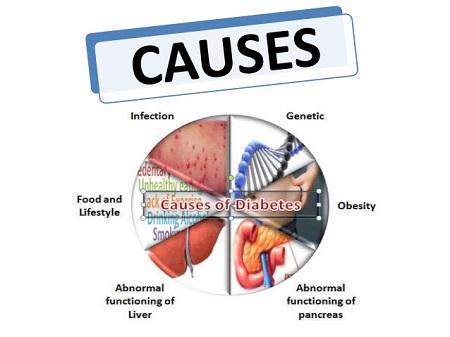
Diabetes causes differ depending on which type you have and whether you're suffering from type 1, type 2, or the more rare condition caused by gestational diabetes, also known as pre-pregnancy diabetes. Type 1 is characterized by the destruction of the pancreatic cells that produce insulin which causes you to have no or little insulin.
Type 2 diabetes, on the other hand, is caused by a hormone called insulin. Insulin is secreted by the body's cells and regulates the amount of glucose (sugar) you consume. When the insulin production is out of balance, sugar levels build up and blood glucose levels drop.
If you have diabetes type one, you will have blood sugar levels in your bloodstream which are far below normal and can cause you to urinate frequently, especially at night. You'll also feel thirsty and often feel extremely hungry throughout the day and it can lead to serious complications.
Type two diabetes, on the other hand, occurs when the pancreas produces abnormal amounts of insulin. This is a lot different than type one since your body doesn't have insulin-producing cells in the intestines. Instead, your pancreas creates too much insulin, resulting in blood sugar levels that are beyond normal and can cause your body to suffer major damage. When the damage becomes severe and the body does not have any more insulin to help you regulate your glucose, your blood sugar levels drop so low that you will become unconscious.
If you're suffering from type two diabetes, it's imperative to treat the condition as soon as possible.
Without proper treatment, it may turn into a chronic condition which can lead to a heart attack or stroke and other health problems
Other causes of type 1 diabetes include genetics, being overweight, poor diet, and lack of exercise. Genetics are usually determined by testing blood samples that show whether a person carries certain gene markers that increase the risk of diabetes. Lifestyle factors include cigarette smoking and alcohol consumption, which can significantly increase the likelihood of developing diabetes.
If you have been diagnosed with type 1 diabetes, it is very important to learn about the disease and the available treatments. The sooner you become infected, the easier it is to cure and the more likely you are to prevent serious complications.
Type 1 and Type 2 diabetes are treated in different ways. One of the popular treatments for this condition is insulin injections. While this type of treatment doesn't seem like a cure, it can dramatically improve your quality of life and make your symptoms less uncomfortable. Diabetes tests are also done to determine if the condition is under control and if you can get the right treatment.
Type 1 diabetes is usually treated with lifestyle changes. If you eat foods high in carbohydrates, you should limit them. These include sugar, pasta, bread, and any refined flour products.
It is also advisable to add more fruits, vegetables and healthy fats to your diet, because they contain antioxidants that fight free radicals and slow down the development of diabetes. Quitting tobacco and drinking plenty of water can also help regulate glucose levels. and keep your blood pressure under control. For more information on diabetes treatment and prevention, visit https://handaldok.com/.
Since many other people are diagnosed with diabetes types one and two, there are many medications that can be prescribed to help. manage the symptoms and keep blood glucose levels under control. If you are obese, the medication can help you lose weight and control the effects of diabetes on your body. Blood pressure medications are available if you suffer from high blood pressure or if you have a family history of the condition.
The best way to prevent diabetes complications is to always maintain proper treatment and get regular checkups. Remember that it's best to speak with a doctor or health professional if you experience any of the warning signs of the condition to avoid complications.
